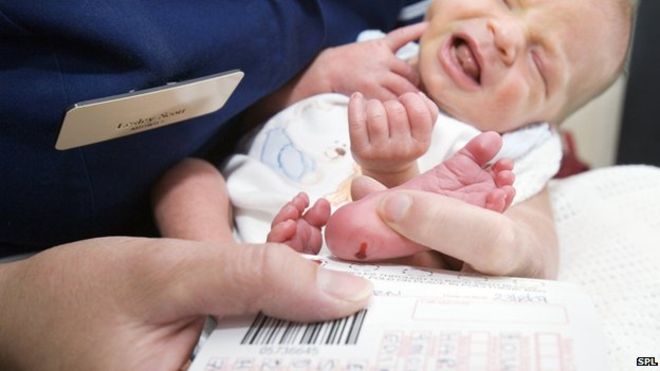Panaji (Goa) Goa government will start the new born baby screening facility in the State under National Rural Health Mission, State Health minister Vishwajit Rane said today.
Goa was the first state to start screening of new born babies when Digambar Kamat led government was in power in the year 2008 but it was later discontinued in the year 2012 by BJP-led government.
“Government of Goa is restarting newborn baby screening on top priority and getting funding from the government of India through the national rural health mission,” Rane said.
“Goa was the only state where 28 parameters were being checked for treatable metabolic disorders in babies – ‘Heel to Heal’ was the name of our campaign where two drops of blood were taken from the heel of the child andwithin 48 hours the tests were conducted so as to give a better quality life for our children,” he said.
“We will move in the direction of Singapore which has new born baby screening linked to birth registrations – in the interests of our children of Goa,” Rane said adding that the process to restart the screening has begun.
“We are hoping that the screening would start from this year onwards as the cases of disorder amongst the children are on the rise and we should diagnose them on time,” the minister said.
In the year 2012, then State health minister Laxmikant Parsekar had told the state legislative assembly that Goa was spending Rs 8.33 crore on the scheme, which can instead be used to improve rural healthcare facilities like Primary Health Centres (PHCs) or Community Health Centres (CHCs).
Parsekar had made this announcement on the floor of the House responding to questions raised during passing of the demands for grants on health department.
The medical screening was done to detect metabolic disorders among the new born children.
Neo-Gen Lab, Bangalore was awarded the work to conduct the tests.
“Through these screenings we have found that one of 9,000 babies born at GMC has an amino acid disorder, one out of 11,500 babies has fatty acid disorder and one of 30,000-40,000 has an organic acid disorder,” Parsekar had told the Assembly.



























